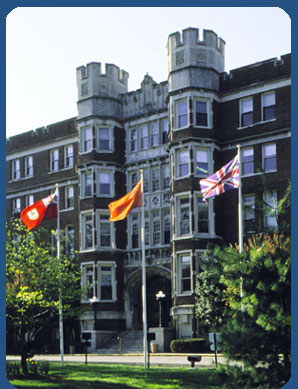| Women's Intellectual Contributions to the Study of Mind and Society Students, as part of an advanced seminar, examined and wrote about the lives of these women,
their intellectual contributions, and the unique impact and special problems that being female had
on their careers. |  |
| For information about referencing this paper - Click Here |
CLARA MAYO
(1931-1981)
Clara Weiss was born in Linz, Austria, on September 13, 1931, to Joseph and Maria Weiss. She was an only child in a family with a very privileged lifestyle.
In 1938, however, Clara and her mother were forced to flee Austria suddenly in order to escape the Nazis. Her father was on a business trip in England at the time. Clara was very young and was confused by this because she had never identified herself as a Jew. Her mother was Catholic, and her father was the product of a "mixed marriage".
Clara and her mother temporarily settled in Paris, where Clara's father joined them. They then traveled to Marseille, where they elicited aid from strangers who could help them get to the United States.
In 1939 the family arrived in New York. Clara learned English by "reading her way from A to Z around the Children's Room of the New York Public Library" (LaFrance, 1990, p. 239).
Upon graduating from Hunter High School in New York, Clara entered Cornell University. She majored in philosophy, but also studied psychology under Urie Bronfenbrenner, assisting him in a research project in 1952. The project required that Clara observe family interactions for long stretches of time without the aid of a recorder. She became adept at observation and promoted its importance as a research technique.
Clara married James P. Mayo, Jr. in January, 1953.
Clara Mayo graduated from Cornell in 1953 and subsequently entered the master's degree program in psychology at Wellesley College. She received her degree in 1955.
Clara was accepted to the social psychology doctoral program at Clark University in 1955. She was awarded her Ph.D. in 1959. Her dissertation "examined the impressions that people form from inconsistent information about others" (LaFrance, 1990, p. 239). Mayo wanted to "explore the degree to which first impressions could be altered in the face of subsequent discrepant information" (LaFrance, 1990, p. 240) in order to understand why people's stereotypes persist even when they are confronted with people or information that disconfirms them.
When she left Clark, Clara became a social psychology trainee at the Veterans Administration Hospital in Brockton, Massachusetts from 1959-1960. In 1960, she moved to the Veterans Administration Hospital in Boston, where she worked as a research social psychologist, studying people's perceptions of and attitudes about mental illness. She continued that work until 1964.
While working at the hospital, Clara also became a lecturer at Boston University. When she left the hospital, she became an associate professor at the psychology department there. From 1970 to 1974, she was the director of the graduate program in social and personality psychology. She was promoted to full professor in 1974, and in 1978, she became the director of the graduate program in Afro-American studies.
Clara and James Mayo divorced in 1978. They did not have any children.
Clara Mayo felt strongly that psychology should focus on finding ways to answer questions and solve problems that were relevant in the real world. She stated her opinion that "a relevant and worthy social psychology would consist of three interlocking elements: a concern with improving the quality of life, a commitment to knowledge building, and active involvement in intervention" ( LaFrance, 1990, p. 240) in an article entitled "Toward an Applicable Social Psychology".
The goal of much of Mayo's work was to address the problems of racism and sexism in an attempt to develop ways to deal with them.
Mayo was one of the first to study school busing as a way to effect racial integration in schools. In particular, she was interested in finding out what made Black parents decide to pay to send their children to all-White schools.
She also did research on the treatment of African-American people in American courts. She stressed the importance of racial consideration in jury selection and offered expert testimony concerning the unfair treatment of Black defendants in court proceedings and her belief in the necessity of asking potential jurors about their racial attitudes.
Mayo also studied nonverbal behavior, especially in terms of its relevance to racial and gender issues. She thought that even "apparently small [nonverbal] cues could act as powerful barriers to or facilitators of social change" (LaFrance, 1990, p. 241). In a book called Gender and Nonverbal Behavior (1981), coauthored with Henley, Mayo presented the findings of empirical studies designed to determine the role of nonverbal behavior in defining gender in a society and in maintaining power discrepancies between the genders.
Regrettably, Clara Mayo's important research on the connection of racism and sexism remains unfinished due to her sudden and untimely death on November 21, 1981.
During her short career, Mayo was a member of many important groups. She was the president of the New England Psychological Association from 1976-1977, a member of the Society for Experimental Social Psychology, and a Fellow of the American Psychological Association from Division 9. She was also elected president of the Society for the Psychological Study of Social Issues, but unfortunately she died before being able to serve her entire term.
References
- LaFrance, M. (1990). Clara Mayo (1931-1981). In A. N. O'Connell & N. F. Russo (Eds.), Women in psychology: A bio-bibliographic sourcebook (pp. 238-245). New York: Greenwood Press.
Back to Women's Page
